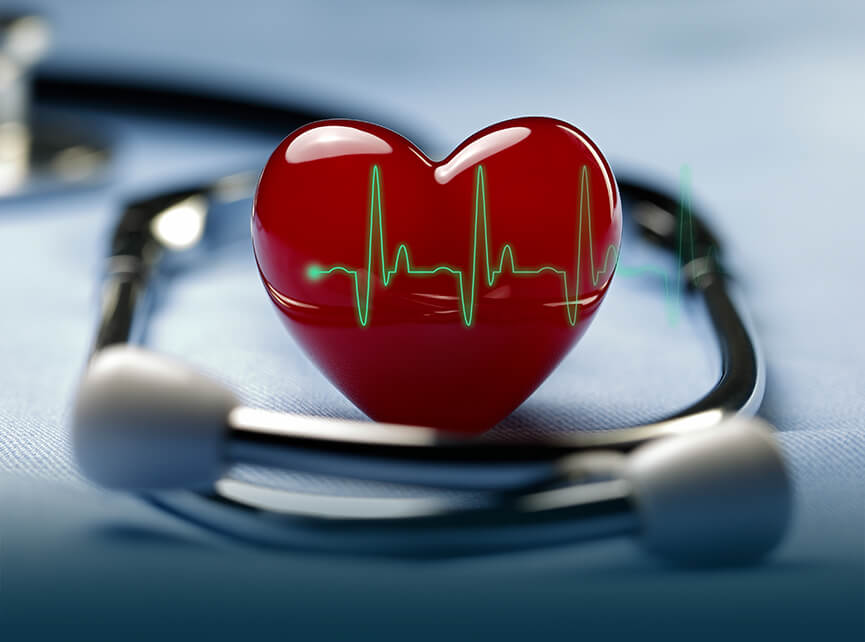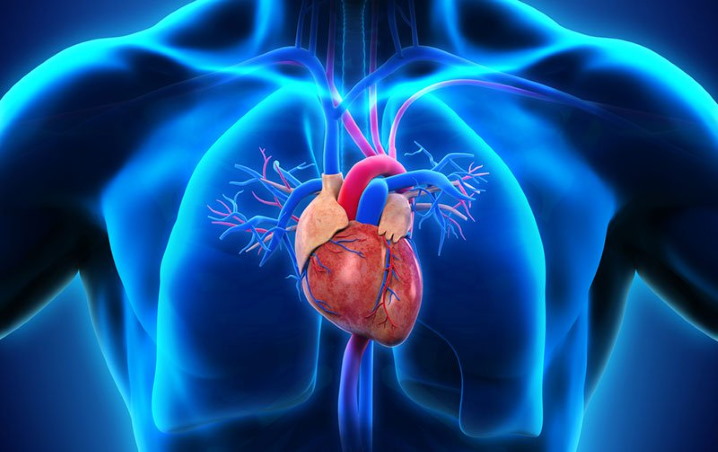A week of heart-friendly meals from Cardiology Jupiter
Wiki Article
Recognizing the Relevance of Cardiology in Modern Health Care Solutions
Cardiology plays a crucial duty in modern-day health care, particularly as heart condition continues to be the leading cause of mortality worldwide. Developments in diagnostics and treatment have changed patient treatment, making it possible for earlier interventions and improved end results. Furthermore, the change in the direction of preventative cardiology encourages individuals to handle their health proactively. As modern technology remains to evolve, the assimilation of innovative remedies may additionally redefine cardiology's influence on public health, triggering a better assessment of emerging trends and their effects.The Frequency of Heart Problem and Its Effect on Public Health
Heart condition remains the leading cause of death internationally, its influence extends much past individual clients to influence public health systems and economies. The high frequency of cardiovascular disease places a considerable strain on health care resources, demanding enhanced funding for avoidance, therapy, and rehabilitation programs. Public health campaigns must resolve threat variables such as weight problems, smoking cigarettes, and sedentary way of lives, which add considerably to the climbing occurrence of heart conditions.Moreover, the economic problem associated with heart condition is immense, incorporating not just straight medical expenses however likewise indirect expenses connected to shed efficiency and early mortality. Communities deal with obstacles in managing these expenses, frequently resulting in disparities in healthcare access and results. As the population ages and lifestyle-related dangers proceed to escalate, the seriousness for effective cardiology treatments comes to be paramount. Resolving heart disease is not only a matter of specific health and wellness however also an essential public health and wellness concern.Advancements in Heart Diagnostics and Imaging Techniques
Recent advancements in heart diagnostics and imaging techniques have actually revolutionized the field of cardiology, enhancing the capability to keep track of and find heart illness. Methods such as heart MRI, CT angiography, and echocardiography have actually come to be increasingly sophisticated, offering comprehensive pictures of heart frameworks and features. These methods enable the early identification of conditions like coronary artery illness, cardiac arrest, and valvular disorders.Moreover, innovations in non-invasive diagnostics, such as wearable modern technology and remote tracking tools, have equipped people and healthcare suppliers. These devices promote real-time monitoring of heart rhythms and other crucial indicators, resulting in timely treatments. Furthermore, fabricated knowledge is being incorporated right into imaging evaluation, improving precision and effectiveness in diagnosis.Technologies in Therapy Options for Heart Conditions
Current innovations in cardiology have brought about significant innovations in therapy alternatives for heart disease. These consist of sophisticated medical methods that improve step-by-step outcomes and arising drugs that supply new opportunities for treatment. As the area progresses, these developments play an essential duty in boosting person care and end results.Advanced Surgical Techniques
Technologies in medical methods have changed the landscape of cardiology, providing new wish for clients with heart disease. Minimally intrusive procedures, such as catheter-based interventions, have greatly lowered recuperation times and hospital keeps. Techniques like robotic-assisted surgery boost precision, enabling doctors to navigate complicated physiological frameworks with higher accuracy. Developments in imaging modern technology facilitate real-time visualization throughout procedures, improving results. Transcatheter aortic valve replacement (TAVR) exhibits an innovation in treating aortic constriction, enabling shutoff substitute without open-heart surgical procedure. Additionally, hybrid approaches that integrate catheter-based and medical methods offer tailored remedies for numerous heart problems. These advanced medical techniques not just enhance client security but likewise increase treatment alternatives, highlighting the vital role of innovation in modern-day cardiology methods.Arising Treatments and medicines
As the landscape of cardiology remains to evolve, arising medicines and treatments play an essential function in enhancing treatment options for heart conditions. Technologies such as novel anticoagulants and progressed lipid-lowering representatives have changed the management of heart diseases, substantially lowering individual morbidity and death. Additionally, the advancement of genetics treatments and regenerative medication offers promising opportunities for treating conditions formerly deemed incurable. Professional trials are continually exposing the efficacy of these treatments, pressing the borders of standard therapies. The integration of digital health and wellness modern technologies facilitates personalized medication, enabling for customized therapy strategies based on hereditary and lifestyle variables. Jointly, these innovations highlight the dynamic nature of cardiology, boosting individual outcomes and redefining criteria of care in modern-day health care.The Duty of Preventive Cardiology in Client Treatment
Precautionary cardiology plays an important role in person treatment by concentrating on the recognition of risk factors that add to cardiovascular disease. With way of life modification approaches and very early discovery techniques, health care service providers can effectively minimize the incidence of cardio events - Cardiology. This proactive method not just enhances person end results but likewise promotes long-lasting healthDanger Element Identification
While cardiovascular conditions continue to be a leading cause of morbidity and mortality worldwide, efficient risk factor identification serves as a keystone of preventive cardiology. Recognizing danger factors such as hypertension, household, hyperlipidemia, and diabetes history is necessary for very early intervention. Health care experts utilize different screening approaches to evaluate these aspects, enabling tailored safety nets. Furthermore, understanding a person's lifestyle options, such as smoking and physical lack of exercise, better educates risk assessments. This thorough examination allows medical professionals to establish personalized treatment strategies intended at mitigating threats. By focusing on threat aspect identification, healthcare systems can improve person outcomes and minimize the total burden of cardio conditions, ultimately adding to enhanced public health and wellness techniques and source allotment.Way Of Life Modification Strategies
A wide variety of research studies highlights the important function of way of life alteration strategies in minimizing heart disease risk. These strategies incorporate nutritional modifications, raised exercise, smoking cessation, and weight administration. By adopting a heart-healthy diet plan rich in fruits, veggies, whole grains, and lean healthy proteins, people can decrease cholesterol degrees and high blood pressure. Normal physical task enhances the heart and boosts total cardio health. Additionally, stopping smoking significantly reduces the threat of heart problem and boosts recovery rates for those with status quo. Weight monitoring better contributes to cardio wellness by reducing other threat factors such as diabetic issues and high blood pressure. Applying these way of life changes not just promotes specific well-being however additionally works as a cornerstone of preventive cardiology in individual care.Very Early Discovery Techniques
Way of life alterations significantly add to decreasing heart disease risks, yet they are most effective when coupled with click resources early detection techniques. Precautionary cardiology highlights the value of identifying potential heart problems prior to they escalate into severe conditions. Strategies such as high blood pressure monitoring, cholesterol screening, and progressed imaging modern technologies like echocardiograms play critical roles in reviewing cardiovascular wellness. Biomarkers and hereditary screening likewise boost the accuracy of early detection, allowing for tailored preventative techniques. Normal heart risk assessments equip doctor to interfere proactively, possibly stopping heart strikes and strokes (Cardiologist near me). By incorporating these very early detection methods right into routine treatment, clients can profit from prompt lifestyle treatments and targeted treatments, ultimately improving and boosting outcomes lifestyleIntegrating Modern Technology Into Cardiology Practices
As advancements in modern technology remain to improve numerous fields, the assimilation of ingenious devices and systems into cardiology methods has actually ended up being crucial for enhancing client care and results. Telemedicine systems permit cardiologists to keep an eye on individuals remotely, improving accessibility to care while lowering the concern on health care facilities. Wearable gadgets, such as smartwatches, allow continual heart price tracking, alerting both physicians and people to potential concerns in real-time. Furthermore, man-made intelligence (AI) is being used to evaluate vast quantities of cardiac information, assisting in early medical diagnosis and individualized therapy plans. Advanced imaging methods, including 3D echocardiography, improve visualization of heart frameworks, bring about more accurate treatments. Digital health and wellness records (EHRs) improve client details administration, ensuring that cardiologists have instant access to crucial information. Together, these technical advancements are transforming cardiology, advertising proactive monitoring and enhanced health and wellness end results for patients with cardiovascular problems.The Significance of Client Education And Learning and Engagement
Individual education and interaction play an essential duty in the monitoring of cardiovascular health and wellness. By outfitting patients with knowledge about their conditions, treatment options, and way of living modifications, healthcare suppliers empower people to take an energetic duty in their care. This proactive approach can bring about enhanced adherence to recommended medicines, nutritional changes, and workout regimens, eventually decreasing the risk of complications.Engagement additionally cultivates a strong patient-provider connection, encouraging open communication and trust. When patients really feel educated and included, they are much more likely to voice worries and ask inquiries, which can bring about much better clinical results. In addition, instructional sources, such as workshops or digital systems, can enhance understanding and promote self-management techniques. Overall, focusing on person education and learning and engagement is necessary for boosting cardiovascular health, improving lifestyle, and lowering medical care prices connected with heart diseases.Future Fads in Cardiology and Their Potential Impact

Often Asked Concerns
What Way Of Living Changes Can Reduce Heart Condition Danger?
The existing question addresses way of life changes that can considerably lower cardiovascular disease risk. Cardiology care. Taking on a well balanced diet, participating in regular exercise, preserving a healthy and balanced weight, managing tension, and preventing tobacco can notably enhance cardio wellnessExactly How Can I Identify Early Signs of Heart Troubles?
Identifying very early signs of heart problems entails monitoring signs and symptoms such as breast discomfort, lack of breath, fatigue, and uneven Go Here heart beat. Timely awareness of these indicators can prompt required medical examination and intervention for better results.What Are the Differences Between Cardiologists and Cardiac Surgeons?
The distinctions between cardiologists and cardiac surgeons depend on their functions; cardiologists mainly identify and manage heart problems through non-invasive approaches, while heart cosmetic surgeons carry out operations to deal with architectural heart issues. Each plays an important, distinctive duty.
How Usually Should I Obtain My Heart Health And Wellness Checked?
The regularity of heart health and wellness checks differs based on individual threat aspects. Generally, adults should undergo examinations each to two years, while those with status quo may require more regular analyses as encouraged by healthcare experts.What Function Does Genetics Play in Heart Problem Risk?
Genes substantially affects heart problem threat, with familial patterns showing acquired conditions. Specific genetics can predispose individuals to hypertension, cholesterol problems, and other cardiovascular troubles, highlighting the importance of genetic screening in evaluating heart health and wellness. Heart illness remains the leading reason of death globally, its effect prolongs much past specific clients to impact public wellness systems and economic situations. Public wellness initiatives must attend to danger variables such as obesity, smoking cigarettes, and less active way of livings, which contribute greatly to the climbing incidence of heart conditions.Moreover, the economic worry associated with heart condition is enormous, including not just straight medical prices but likewise indirect expenses associated to shed performance and early death. Precautionary cardiology plays an essential function in person treatment by concentrating on the identification of danger variables that contribute to heart illness. Man-made intelligence (AI) and equipment discovering are boosting diagnostics and individual tracking, allowing early discovery of heart conditions. The differences between cardiologists and cardiac cosmetic surgeons exist in their roles; cardiologists primarily manage and identify heart problems through non-invasive methods, while cardiac surgeons do medical treatments to remedy architectural heart issues.Report this wiki page